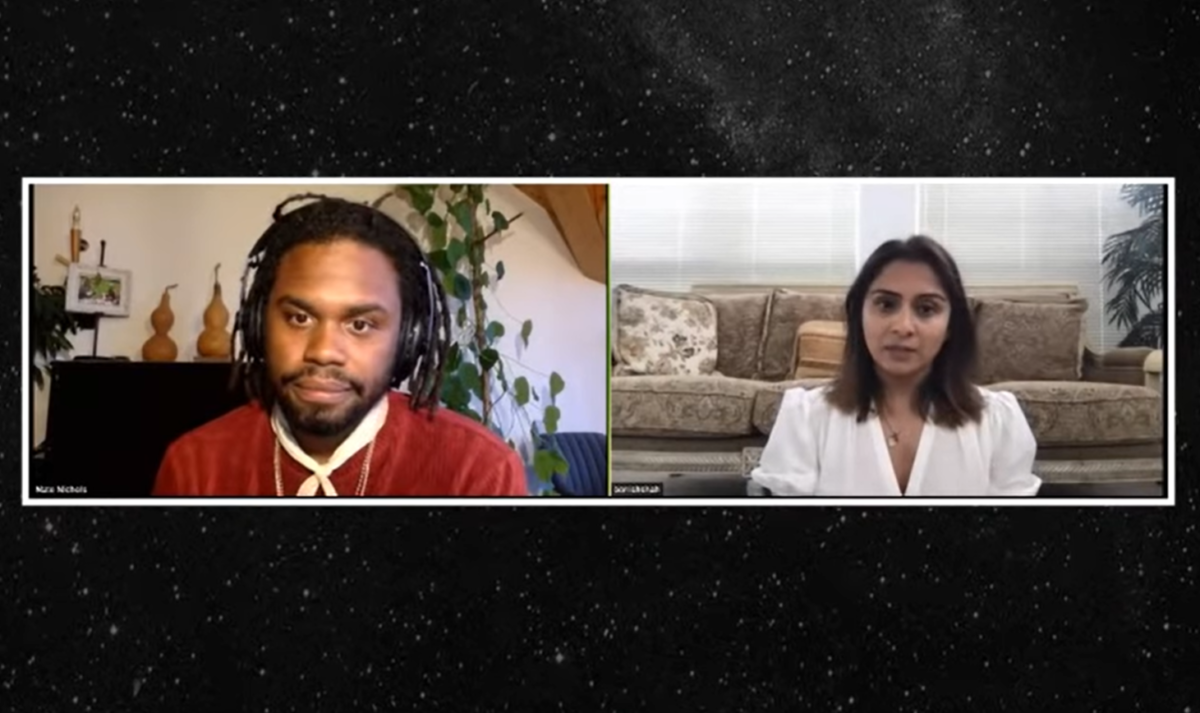
This editorial article is a part of Racial Equity Month of Technical.ly's editorial calendar.
“Corporate America is complicit with this culture of racism.”
Benish Shah, the New York-based chief growth officer for business gifting company Loop & Tie, minced no words in sharing her insights on race, protests and the workplace with Palette Group founder and Creative Director Nate Nichols during Thursday’s Allyship and Action Summit, a virtual conference of panels, fireside chats and breakout rooms designed to find solutions for diversity and inclusion in advertising.
A former Philadelphian, Nichols and his colleagues came up with the idea for the summit and its accompanying pledge for action on June 2, a day known to many social media users as Blackout Tuesday. With discussions on race and equity, the summit was designed to educate professionals of all backgrounds on antiracism practices.
In addition to raising awareness for allyship and action in the advertising industry, companies are being invited to sign a pledge for a more racially equitable industry, and their progress will be tracked via the Allyship and Action website.
“We’re developing a technology platform that companies will use to post their latest evergreen or tentpole campaign projects,” Nichols told Technical.ly via email. “They’ll upload their staffing plans, we’ll connect with the individuals that were on the project for them to self-identify and report that data back up to the companies page. We’ll have a minimum number of projects that must be equitably staffed for organizations to remain certified. The goal is to have brands and agencies be transparent and hold each other accountable.”
Shah participated in one of the summit’s fireside chats with Nichols Thursday afternoon on how companies can support employees from diverse backgrounds in this moment. Technical.ly tuned in for their conversation and caught these three key takeaways:
Accept that when you do say something inappropriate, don’t become defensive.
Shah believes that white people should not be resistant to correcting themselves when saying improper things about race.
“It’s more about saying, ‘I clearly said something wrong, I’m sorry, how can I do better?'” said Shah, who recently published some guidelines for discussing trauma at work. “If you become defensive, you lose them. Don’t make the trauma about yourself. It’s about genuinely showing care and concern towards the person that’s affected.”
That self-awareness should apply to people of other races, too.
“I am a person of color but not Black,” she said. “This moment of history is about Black people. As a brown person, it’s something we tell our brown friends all of the time: We have to step up our own empathy and own decentralizing.”
Create a safe space in your office.
Shah emphasized the need for offices to be spaces free of microaggressions and inappropriate comments.
“If you are a person talking about microaggressions, you don’t have a safe space. If the microaggressions are, ‘Can I touch your hair?’ or ‘I’m almost as dark as you!’ or “You got this job?” all it does is make it easy for people to be racist without calling them racist,” she said.
Intentions to create safe spaces without action aren’t enough: “If you aren’t stopping these conversations it’s not the right answer.”
White leadership: Change will have to come from active participation on your side.
For Shah, white leadership’s buy-in to changing problematic office culture is a key component of shifting negative paradigm.
“Don’t rely on Black team members to all your questions,” she said, emphasizing the accessibility of Google as an information resource. “Create immediate change. The urgency of the moment is at the place where people are fearing for their lives on a constant basis.”
Shah noted that actions like acknowledgement of racial strife are more important than words.
“You also have to practice acknowledgement,” she said. “A statement from the company is cool, but are you actually talking about it with your team?”
For further reading about how to talk about race at work, check out the latest episode of The TWIJ Show.
Michael Butler is a 2020-2022 corps member for Report for America, an initiative of The Groundtruth Project that pairs young journalists with local newsrooms. This position is supported by the Lenfest Institute for Journalism.Join the conversation!
Find news, events, jobs and people who share your interests on Technical.ly's open community Slack

Philly daily roundup: Student-made college cost app; Central High is robotics world champ; Internet subsidy expiration looms

Philly daily roundup: Earth Day glossary; Gen AI's energy cost; Biotech incubator in Horsham

Philly daily roundup: Women's health startup wins pitch; $204M for internet access; 'GamingWalls' for sports venues


